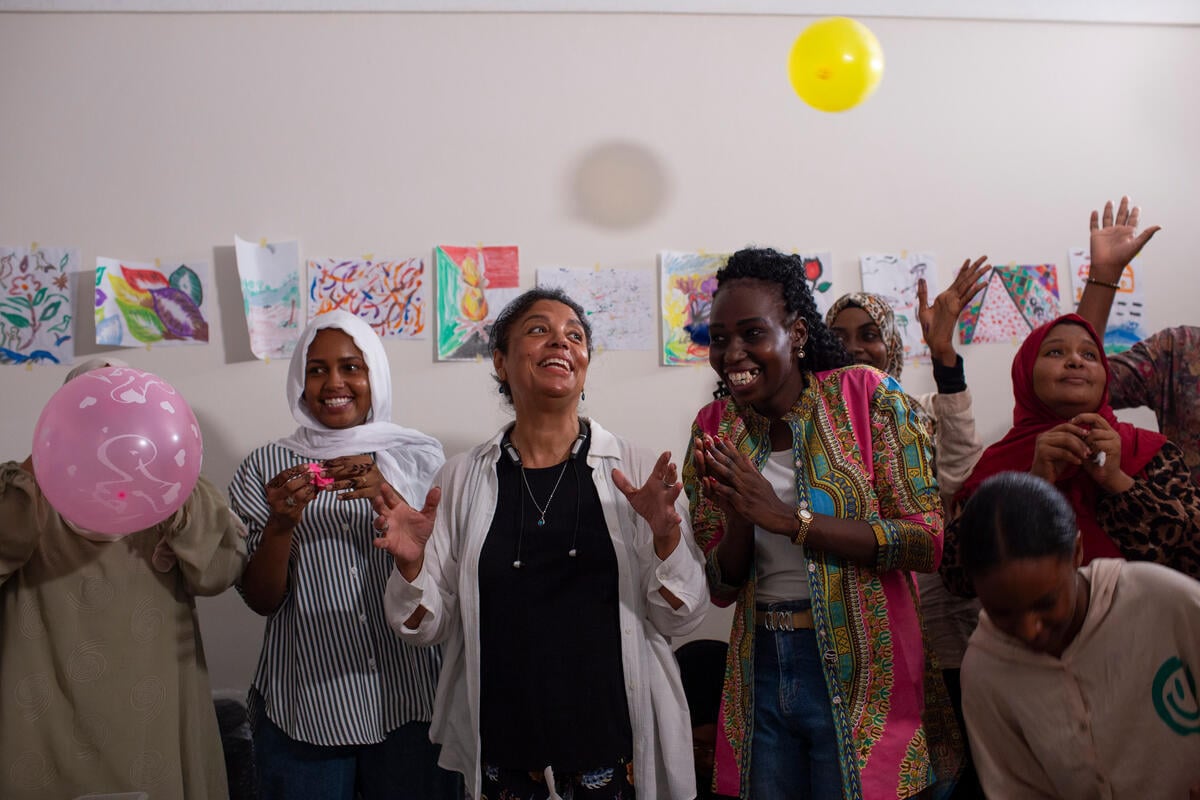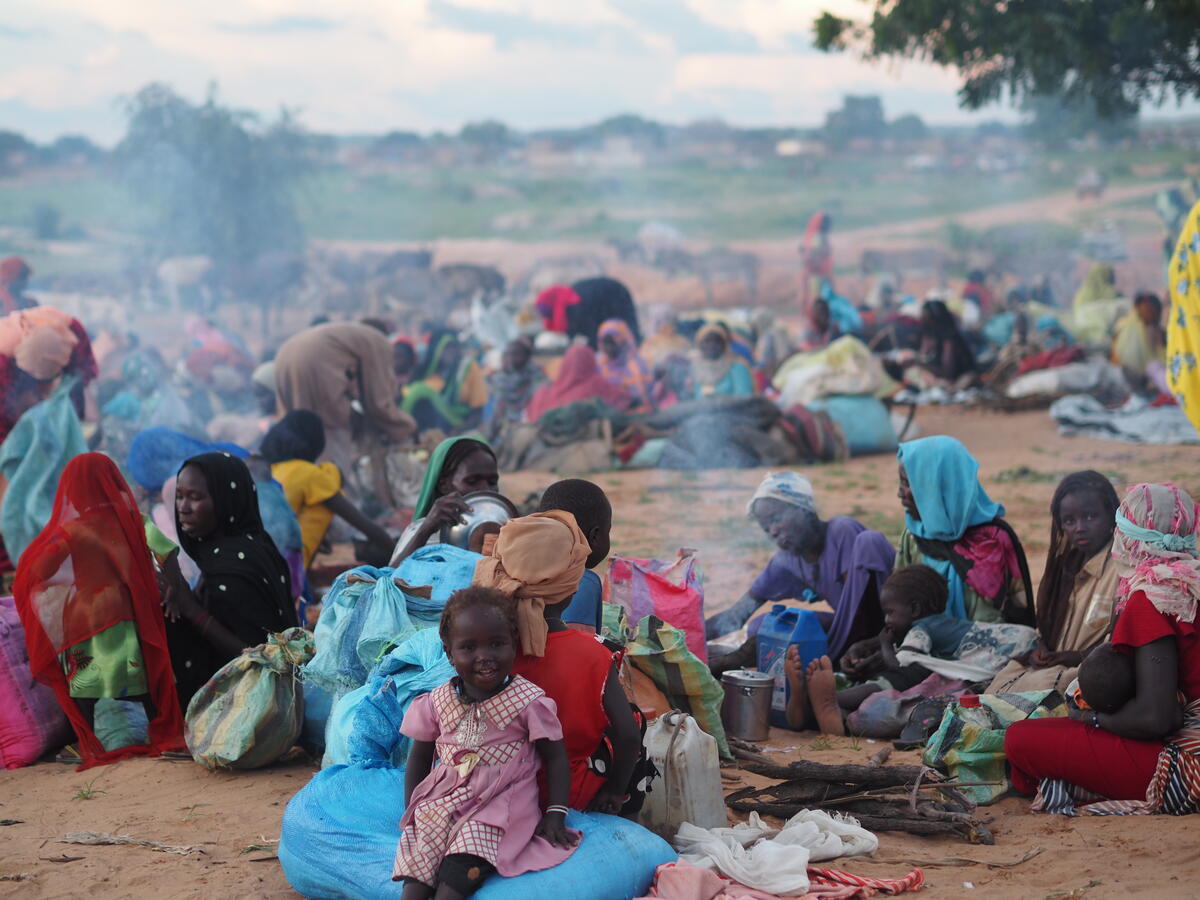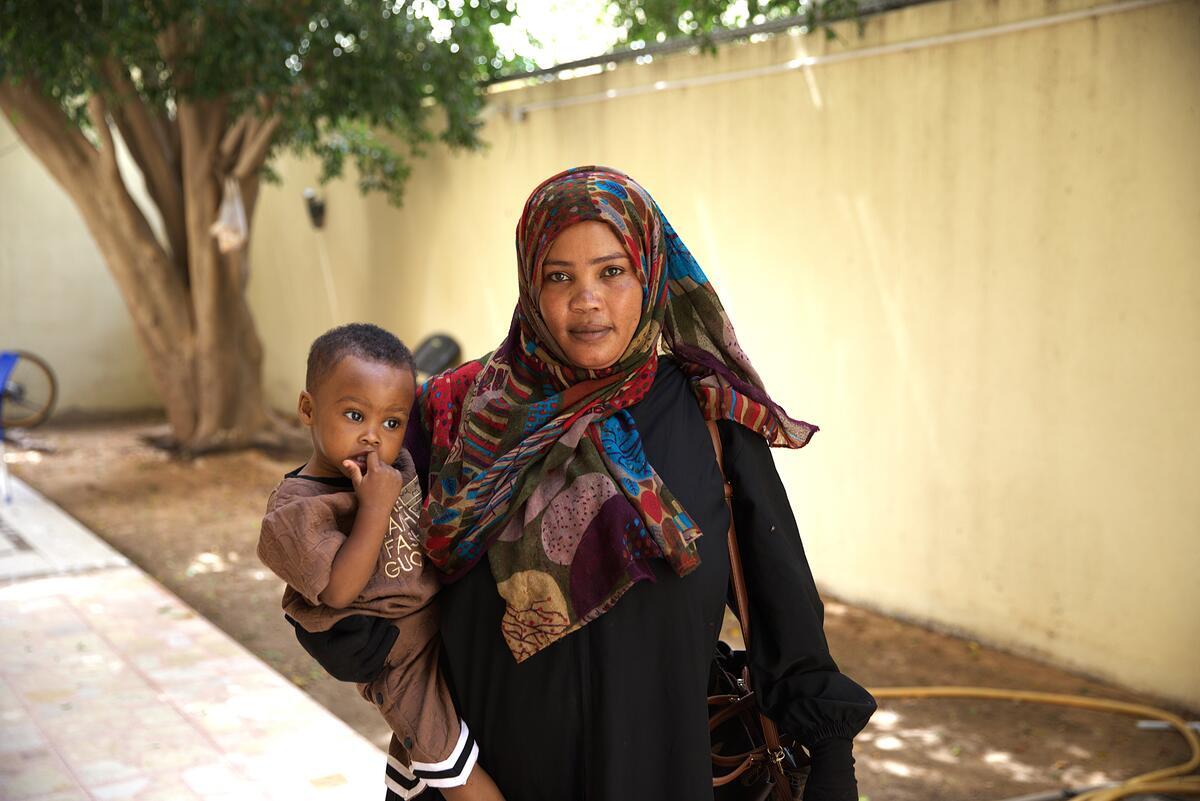UNHCR transfers more than 1,300 refugees from Chad border to camps
UNHCR transfers more than 1,300 refugees from Chad border to camps

BIRAK, Chad, March 14 (UNHCR) - The UN refugee agency has transferred more than 1,300 Sudanese civilians to Kounoungou camp in eastern Chad since launching an operation last week to move vulnerable refugees away from border areas.
UNHCR has transferred 1,311 refugees who fled recent fighting in Sudan's West Darfur state to Kounoungou since March 6, including 248 who left the border area of Birak Friday on the sixth convoy to date.
The refugees have been picked up at pre-designated collection points along the remote and volatile Chad-Sudan border in the Birak region for the long, rough journey to Kounoungou.
The refugee agency has been using six to eight trucks per convoy, but expects to increase that number next week in a stepped-up effort to move some of the estimated 13,000 refugees from Darfur who have fled fighting that erupted in parts of West Darfur in early February.
"We hope to have at least 20 trucks next week to speed up the transfer and bring people to safety. The transfers are a huge logistical challenge for us," said Jorge Holly, head of the UNHCR field office in Guéréda, which oversees nearby Kounoungou.
"The journey from the border to Kounoungou is really rough, it can take up to four hours on very bad sandy roads. The trucks can easily break down," he added. Insecurity and carjacking is also a concern.
Those heading for Kounoungou were elated to be leaving the border. "We can't stay here at the border, we want to go to the camp. Here we have no tents, the children are cold at night. It is so hot during day time. We want our children to go back to school which will be possible in the camp," said 30-year-old Hasme, whose husband and father were killed during the attack February 8 on Sileah, a site for displaced people in West Darfur.
"The people who say we should stay at the border are giving us bad advice," added the mother of eight, referring to men among the refugees who wanted everyone to remain at the border and were urging UNHCR to create a camp there.
In addition to transfers to Kounoungou, UNHCR also plans to take some of the new arrivals to Mile camp. The two camps are both about 70 kilometres from the border. Kounoungou hosts 13,500 refugees from Darfur, while Mile has some 16,000 refugees. UNHCR and its partners already take care of 240,000 Sudanese refugees from Darfur in 12 camps across eastern Chad.
On arrival in Kounoungou, refugees are screened, children vaccinated against measles and everyone given a temporary tent and other non-food aid items. They are also registered and given a food ration card.
Meanwhile, tensions remain high along the Chad-Sudan border and the constantly changing security situation across the border regularly affects the relocation operation. Security along the border is also jeopardized by the presence of various armed groups in vehicles and on horseback.
The refugees being transferred away from the border area arrived in Chad throughout February to escape air and ground attacks by militia in the Jebel Moon area of West Darfur. They found refuge in and around 11 Chadian villages in the Birak area, including in Seneit, Figuera, Bagar Katala, Djatak, Himera.
Refugees interviewed at the border this week said they had buried bags of grain in their villages in West Darfur before fleeing. "We came back from Chad to try to take them, but the janjaweed had found them before and burnt all the grain," said 63-year-old Mariam in Birak. "I don't want to go back to Darfur. We have nothing there now, we have no huts anymore," she added.
Some of the refugees had previously fled Darfur for Chad in 2003-2004, but had returned to Sudan last year following inter-ethnic tensions in Chad. The latest fighting in northern Darfur has forced them to flee to Chad yet again.
Not everyone fled the towns and villages targeted by the air and land attacks in West Darfur. A UNHCR assessment mission visited Sileah yesterday and talked to people who had returned or never left. "I have not gone to any other place. Most of the people fled when the attack occurred," said one old woman. "My daughters said that we should follow the others, but I asked them how could we be sure that we would not be attacked somewhere else."
The mission to Sileah was part of a joint UN assessment process to identify humanitarian needs of the newly displaced inside West Darfur. Over the past week, UNHCR teams also visited Sirba, Abu Sourouj, Armankul, Tendelti and Bir Saleeba.
In some areas, including Sirba and Abu Sourouj, the vast majority of the population has started to return to their villages, although some family members are still spread along the Chad-Sudan border.
In places like Sileah, the situation on the ground seems more complex. A few people have started to return, but the majority remains in neighbouring areas of West Darfur and in Chad. Given the continued insecurity in the Sileah area, it is unlikely any mass returns will take place in the near future.
By Hélène Caux in Birak, Chad
and Ayman Elsir in Sileah, Sudan









